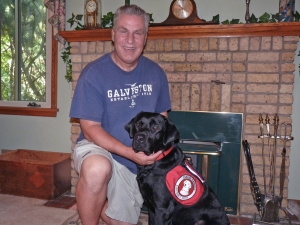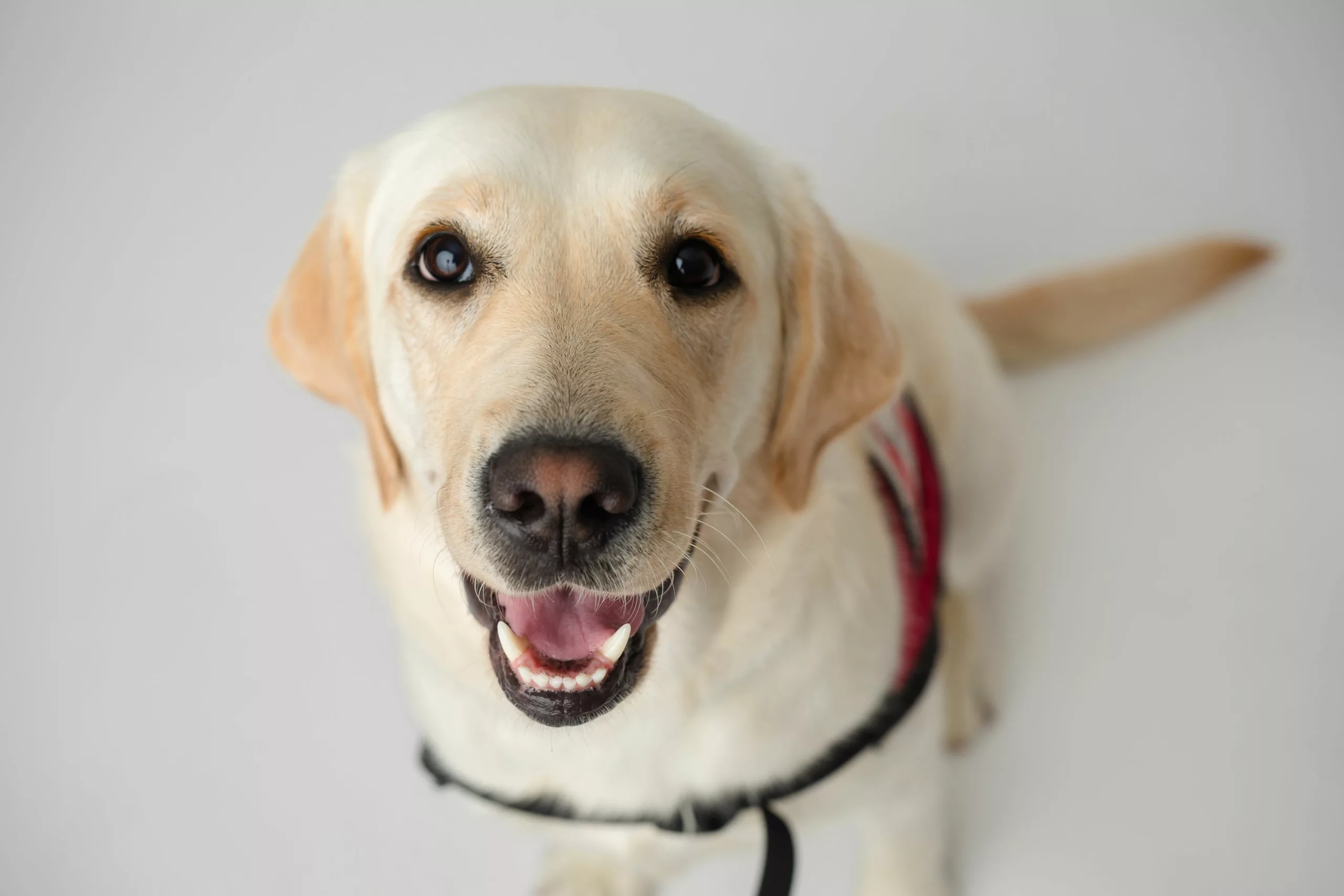 Alan Burggraf & Diabetes Assist Dog Oz
Alan Burggraf & Diabetes Assist Dog Oz
“Diabetes runs through my family,” Alan Burggraf explains. “My grandmother had it—even my first cousin had it.”
So when Alan of Coon Rapids, Minn. was diagnosed with Type 1 diabetes at age 14, it didn’t come as a big surprise. He says his parents could even tell he had the disease before he went to the doctor.
But the last 44 years with the disease have taken its toll. Alan has developed diabetic neuropathy in his hands and is now unable to work.
“It gets worse every year,” Alan says. “My blood sugar can drop without notice. I check my blood sugar ten times a day in order to avoid unsafe levels. Sometimes I can feel when my blood sugar is too low, but sometimes I cannot.”
Coincidentally in 2011, Alan’s daughter, Jessica, helped organize a fashion show to benefit Can Do Canines. After she learned how an assistance dog could be trained to help someone with diabetes, Jessica encouraged her father to apply.
“I think a dog could save my life someday,” Alan wrote in his application to Can Do Canines. “My daughters are very worried about my control over my diabetes and we would all greatly appreciate any help you could give us.”
Help finally came in the form of a Diabetes Assist Dog named Oz. The two-year-old black Labrador retriever is trained to detect a change in the scent of Alan’s breath when his blood sugar levels drop low. He alerts Alan with a nudge of his nose or by placing his paws on Alan’s legs or lap. While this may sound like an impossible task for a dog to learn, Alan says the training process went quite smoothly.
“It went easier than I expected,” he remembers. “Oz is such a smart dog. The trainers taught me so much about dogs that I never knew—even after being a lifelong dog owner.”
Oz’s skills and presence have not only helped Alan feel safer, but they’ve provided peace of mind for his family as well.
“It’s not just all on me now,” says Alan. “I have another shoulder to lean on—someone to help me.”
Being near Oz is a good thing for Alan and he’s already been helped before problems start. One day, Alan was in the garage and Oz could sense trouble, so he retrieved Alan’s emergency bag equipped with soda and a candy bar.
“We had just trained Oz to retrieve the bag the day before,” remembers Alan. “I was in the garage working and he started alerting me—two or three times. I thought, ‘I better go test.’ So I come into the house and the dog was right behind me with the bag in its mouth. That was superb.”
Diabetes is an invisible disease, and Alan wants puppy raisers and donors to know that their gift is life-changing.
“Most people think about assistance dogs for people with physical disabilities,” says Alan. “I’m so grateful what you guys do for people like me. It’s just overwhelming.”
Thank you to all those who made this partnership possible:
Puppy Raiser—The Inmate Handlers at the Minnesota Correctional Facility at Faribault
Long-term Foster Homes—The Doyle Family





